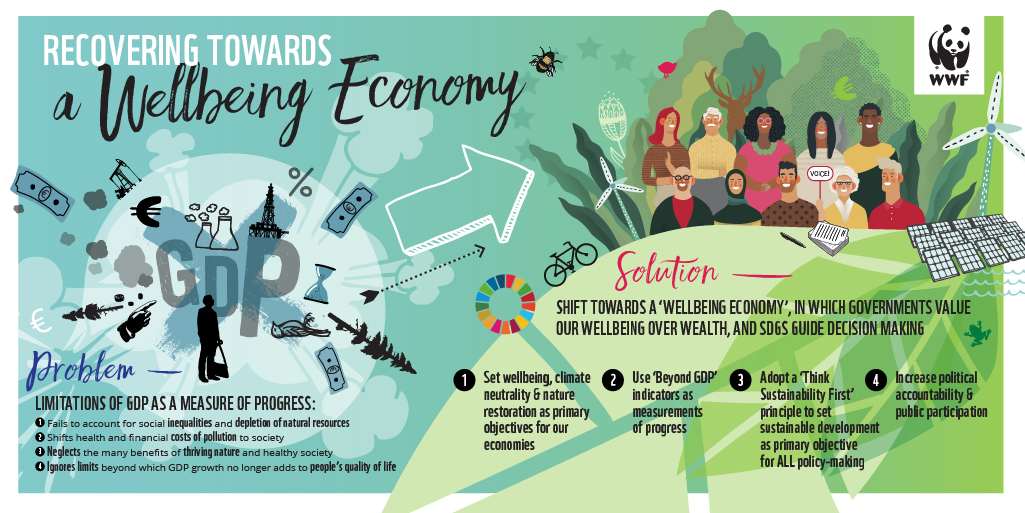By Rebecca Humphries, Senior Public Affairs Officer at WWF European Policy Office
WWF is one of the world’s largest and most experienced independent conservation organisations, with over five million supporters and a global network active in more than 100 countries. The European Policy Office contributes to the achievement of WWF’s global mission by leading the WWF network to shape EU policies impacting on the European and global environment.
Before it’s even over, 2020 is already a year like no other. It has been marred by an unprecedented crisis caused by the COVID-19 pandemic, affecting people’s health, livelihoods, and social connections, with no end currently in sight.
Governments across the world have adopted measures to address the economic fallout of the crisis. In the EU, leaders have subscribed to calls for a ‘green recovery’ – but already there are signs that short-term economic interests are being prioritised over longer term considerations of environmental and social sustainability. This crisis has arrived at a time where we are facing an ecological crisis without precedent: runaway climate change and biodiversity loss are driving us towards a sixth mass extinction.
The wrong choices could have catastrophic implications for future generations: propping up destructive sectors such as fossil fuel energy or intensive agriculture with public funding could lock in investments for decades to come, making it all the more difficult to tackle the ecological crisis we’re facing.

That’s why WWF believes that now is the time for a paradigm shift, to take the EU on a different trajectory. Our new report ‘Towards an EU Wellbeing Economy – a fairer, more sustainable Europe post Covid-19’ calls on EU leaders to rethink what to prioritise and how to measure progress. With GDP growth as the only basis for political decision-making, policy-makers will inevitably miss what their citizens value most, such as our quality of life, wellbeing, health, and the health of our natural world. GDP growth fails to account for social inequalities and neglects the many benefits of thriving nature and a healthy society – new indicators that measure these important aspects would help leaders to better value our societies’ and our planet’s wellbeing.
There are already promising first signs of a paradigm shift: last year, EU Member States supported calls for ‘the economy of wellbeing’, tentatively following in the footsteps of countries such as New-Zealand, Iceland, Scotland and Wales, which are already working on implementing a wellbeing economy by integrating alternative measures into their decision-making, budgetary processes and economic policies. Just last month, the European Commission recognised that the health crisis had ‘reignited the debate on what kind of economic growth is desirable, what actually matters for human wellbeing in a world of finite resources and on the need for new metrics to measure progress beyond GDP growth’.
Now, we must ensure that the EU goes beyond words on paper. With this report, WWF is calling for a new framework for measuring progress, built on a shared commitment across the EU to shift to a wellbeing economy. The UN Sustainable Development Goals (SDGs), already provide a comprehensive, integrated and universal framework that aims to leave no one behind and to achieve prosperity for people and planet. By stepping up its efforts to fully implement the SDGs, the EU now has an opportunity to achieve this shift and deliver on its promises of a green, just, and socially inclusive recovery.
the discussion?
Let us know what
you would like
to write about!
